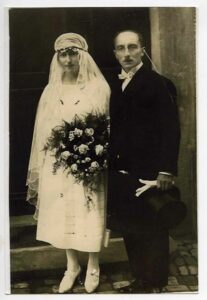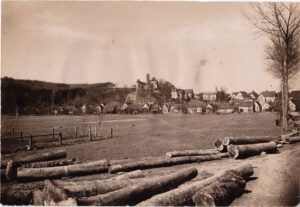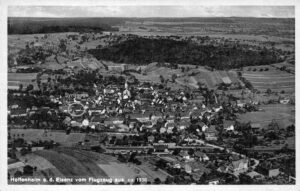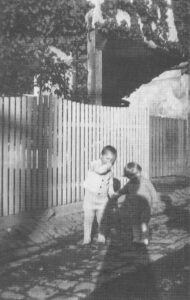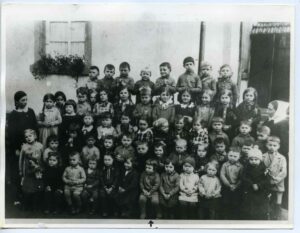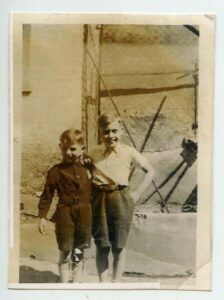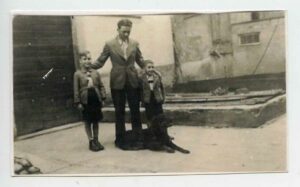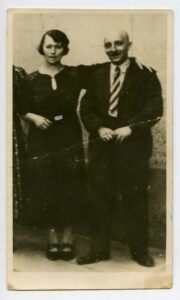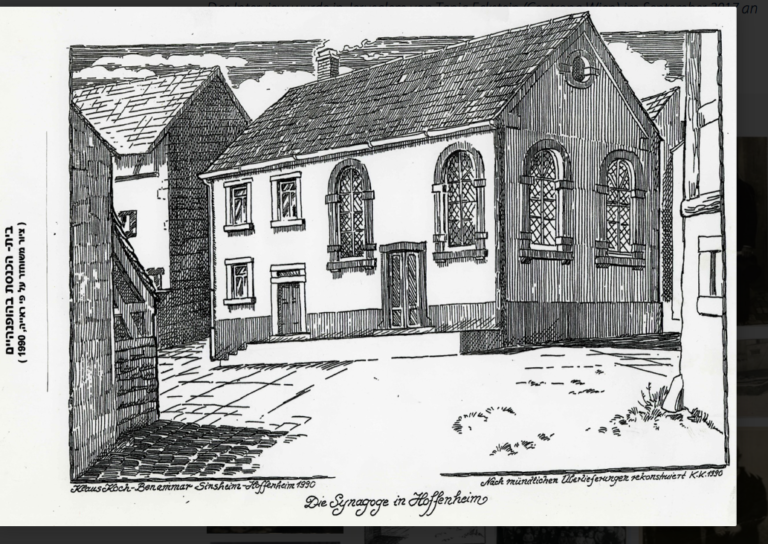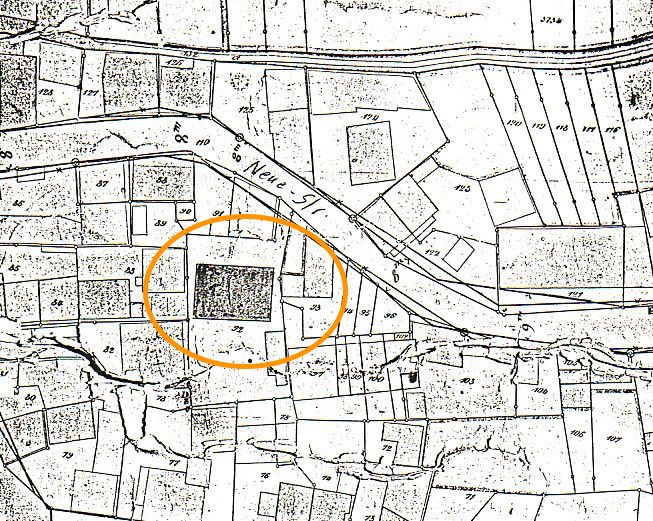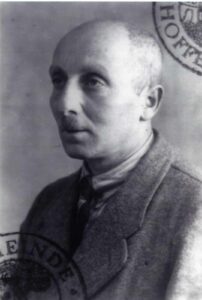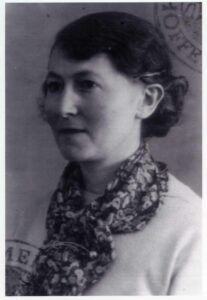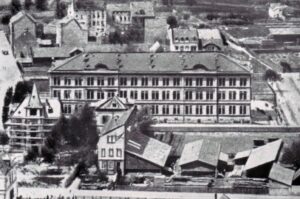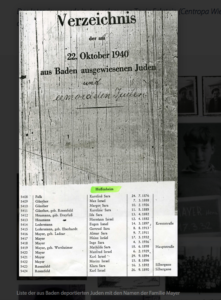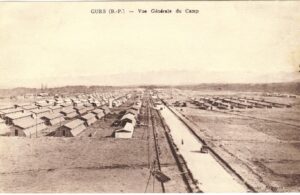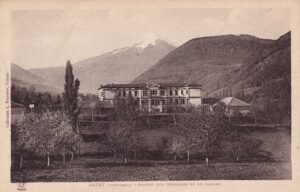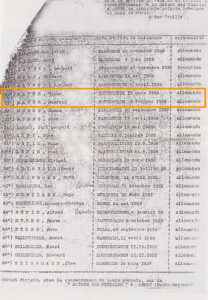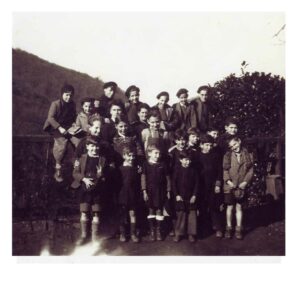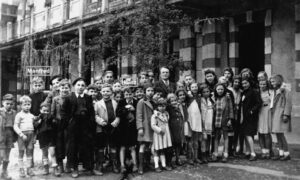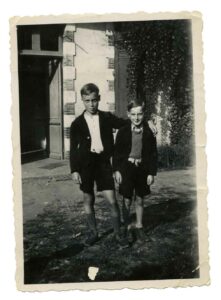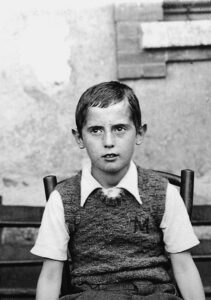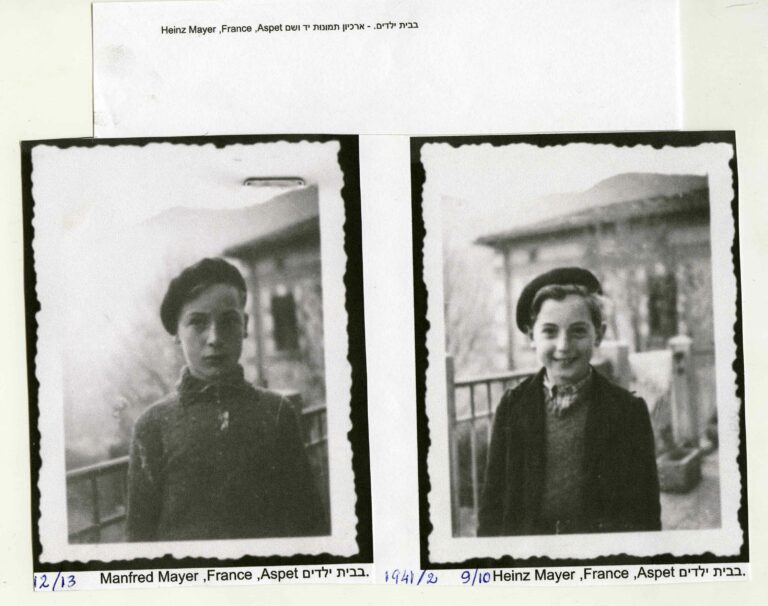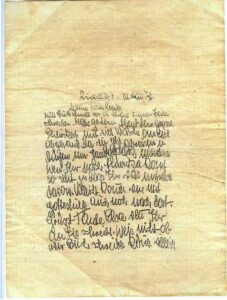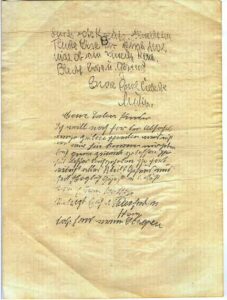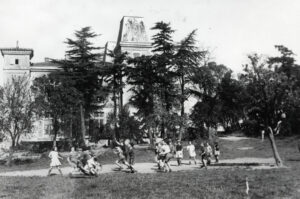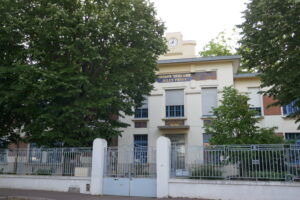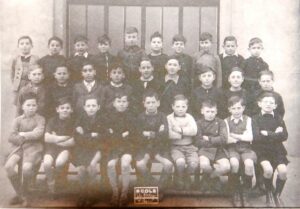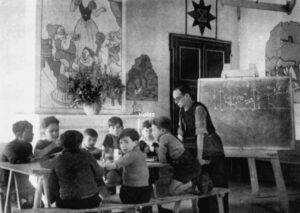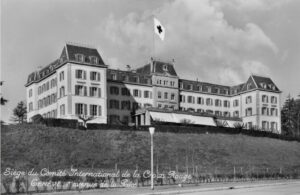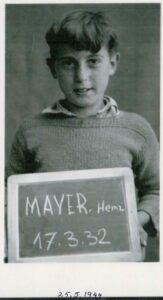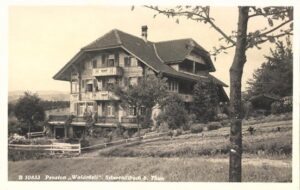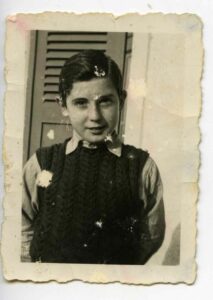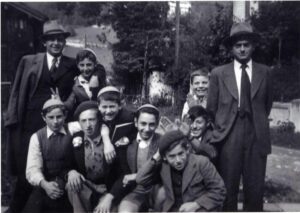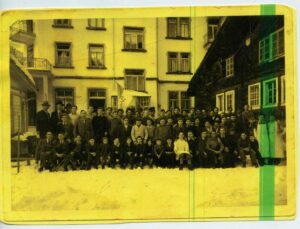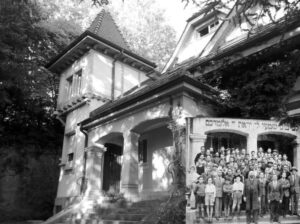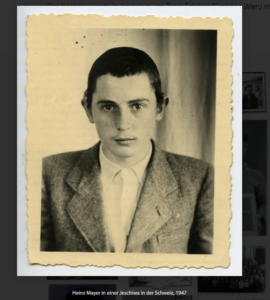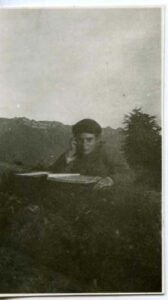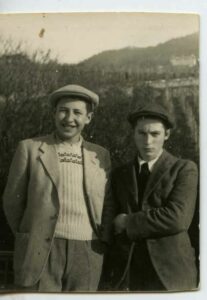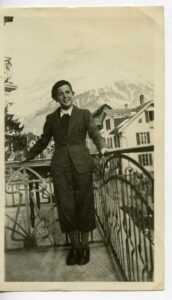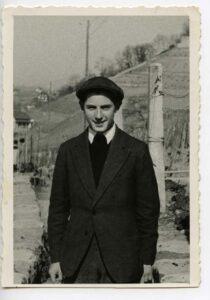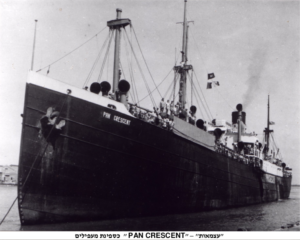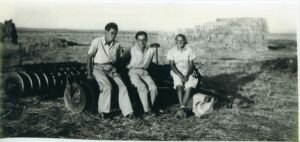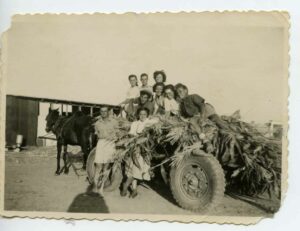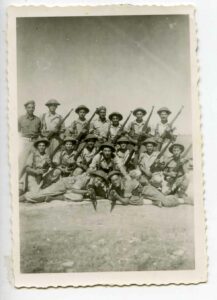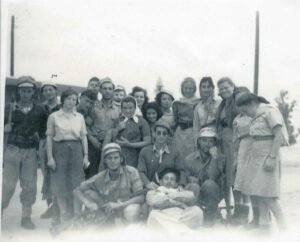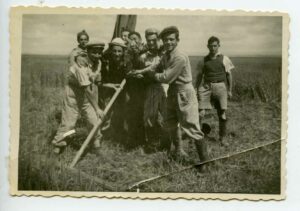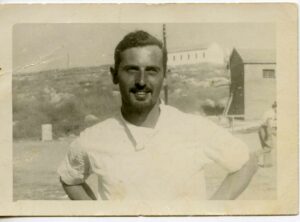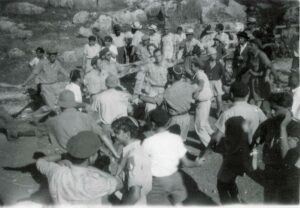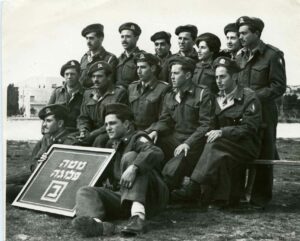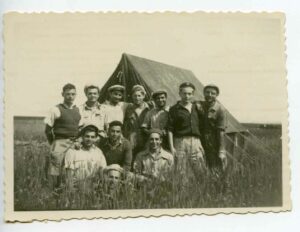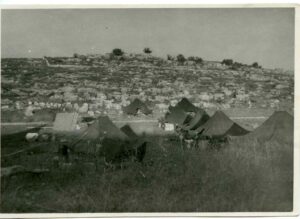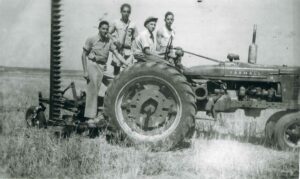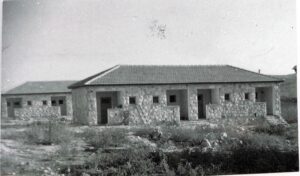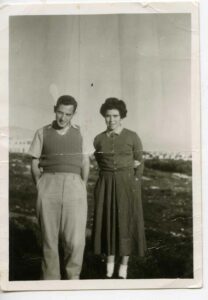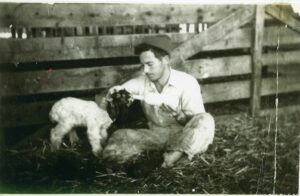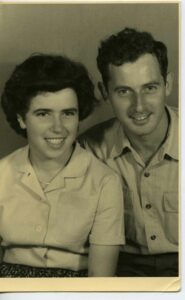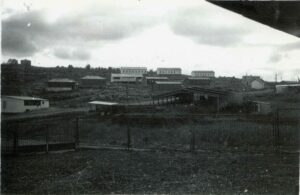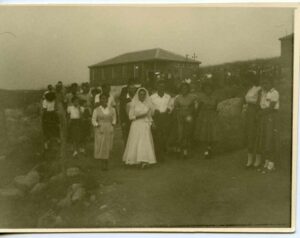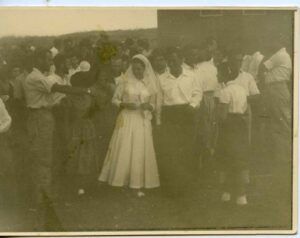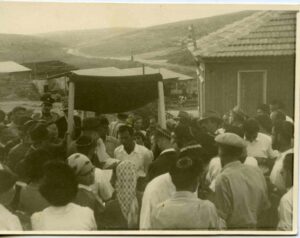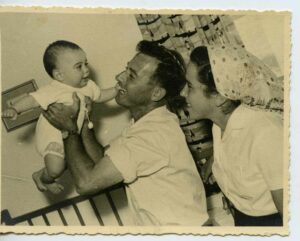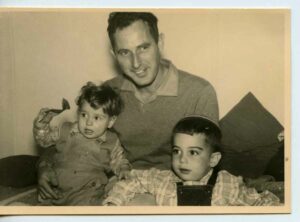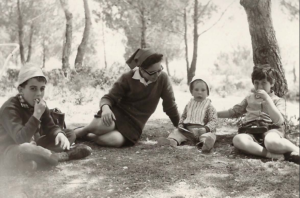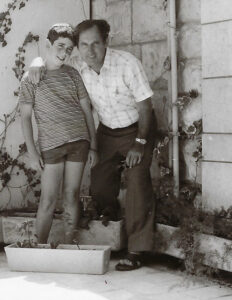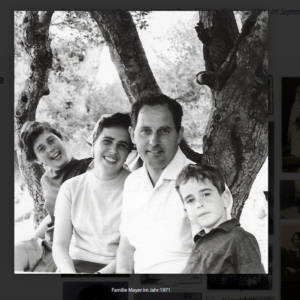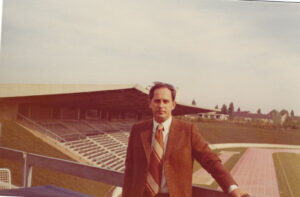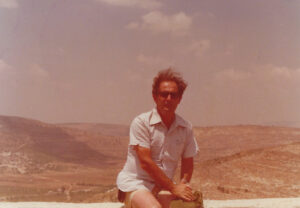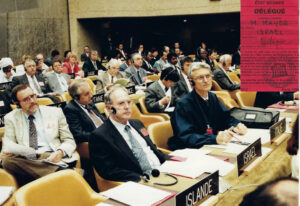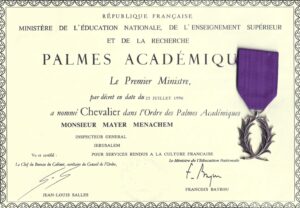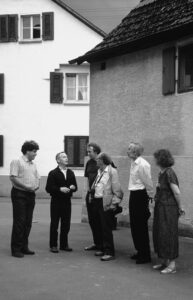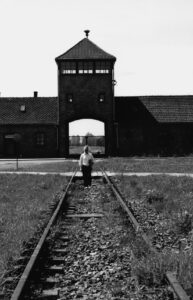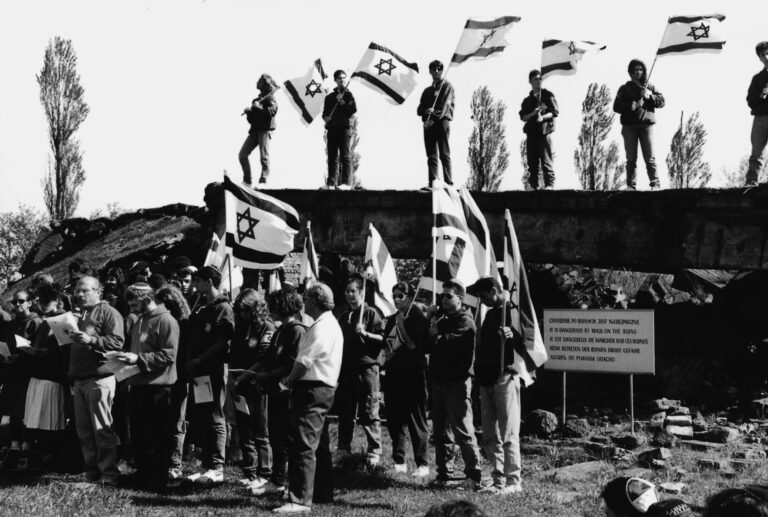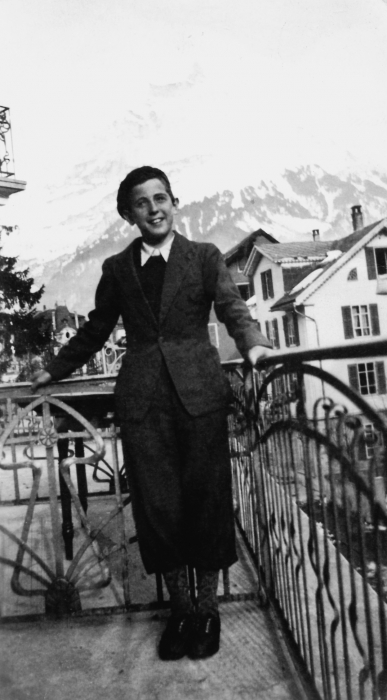- Startseite
- Zahor
- Biography
Biography
Preface
In September 2017 I took a flight to Israel to meet Menachem Mayer in the two-room apartment of a wonderful retirement home where he lives near mount Herzl and near to Yad Vashem, the largest of the holocaust memorials. He received me very kindly, and over three days, each day during four hours, he related his history, which was not easy for him to do. He had blocked out many incidents as a means of self-protection, for after the war he had to put a new life together all alone, without family. His brother Fred, who was three years his senior and had passed away at the time we met, had told him about a number of things. Late in October I visited Menachem again, this time in order to show him the transcription of what he had related to me. This transcription is what you find in the following.
Content
The maternal family of Menachem
Family tree, professions, residences, fate during Nazi time
My ancestors had lived in Baden for centuries. My maternal grandfather, his name was Meir Wertheimer, lived in a village named Neidenstein not far from Hoffenheim. He dealt in footwear and owned a shoe store. My biological grandmother was called Hannah. My mother Mathilde, commonly called Hilde, was her only child. She was born in Neidenstein in 1898. Grandmother died in 1902 when my mother was only four years old. Grandfather married a second time: a woman named Mina (Wilhelmina), née Kaufmann, whom I knew as my grandmother. She was a very good grandmother indeed! Her son Emanuel, the stepbrother of my mother, was born in 1903. My mother and Emanuel will surely have grown up like siblings. The grandfather, I believe, died in 1920.
Uncle Emanuel was unmarried, a higher ranked official in a furnace factory, and better off than we were. Sometimes he bought new clothing for me and my brother. And in addition he owned a car. Each year before the high holidays we visited the graves of our relatives in nearby Waibstadt, as it is customary for Jews. Children are not allowed to enter the cemetery while their parents are still alive, and thus Manfred and I waited in the car, and we both were a little bit afraid of the dark and mysterious woods. I returned there for the first time in 1974, after about 40 years.
Grandmother Mina and uncle Emanuel were deported together with us to Gurs in France. Grandmother Mina died there, uncle Emanuel was murdered in Auschwitz.
Menachem’s family on his father’s side
Family tree, professions, residences, fate during Nazi time
My paternal grandparents lived in Hoffenheim, then a little village and since 1972 a part of Sinsheim. Today Hoffenheim has a famous soccer team, but back then it was a little village in the north of Baden. Towards the end of the 19th century there were 48 Jewish families in Hoffenheim. They were merchants, tradesmen, shop owners and cattle dealers like my father. Klara, the grandmother, née Heumann, died in 1926. I had no chance of getting to know her.
My father, Karl Mayer, was born in Frankfurt at the Main in 1894. I do not know why he was born there, while his father, Albert Mayer, who was a custom tailor by profession, came from Poppelsdorf, a place which became part of Bonn in 1904. I do not know why the family then moved to Hoffenheim, when my father was two years old. But a reason may have been that my grandfather’s wife was born a Heumann, and the Heumanns, uncle and aunt of my father, lived in Hoffenheim with their children. I do not know about the schooling of my father, but he was apprenticed in the kosher butcher shop of his uncle Hermann Heumann in Hoffenheim.
When my father was 20 years old, the First World War started. He became a sergeant, was prisoner of war of the English, and when the war came to an end he was awarded the Iron Cross.
My father had a brother named Moritz and a sister named Elsa. The wife of Moritz was aunt Alma. They had a daughter named Ingrid who was called Inge. Like my brother and myself, Inge was rescued from Gurs and hidden by the French family Eisenreich, who were catholic. After the war she was found by their aunts and brought into the States. The Eisenreich family was honored in 1995 by Yad Vashem as “Righteous among the Nations” for saving my cousin.
Aunt Elsa, my father’s sister, was a seamstress, and she was unmarried. And there was Helmut, a boy who is shown in one of the photographs. He was born in 1920, he was like a brother to us. Aunt Elsa managed to escape to England as a housemaid in 1939. While in London she remained in contact with her family as long as it was possible, and even supported us a bit financially. Many years after the war I asked her: “Who was Helmut?” She told me that Helmut was the son of a relative whom she had looked after, because in his family some things had been not in order. She was ashamed to tell the truth, but I found it out later: Helmut was her illegitimate child with a non-Jewish neighbor. After she had fled to England she held for a certain time the contact to him through letters and knew his whereabouts. Once I leafed through the written out memory files of Yad Vashem in the Internet. There I found his name. I had written a memory file for him myself, but there had been someone who had done exactly this. I learned through this other file that he had been a member of a Kibbutz. They were young folk who planned to go to Palestine, and they were in a preparatory camp, one calls this ‘to be on Hakhshara’. But in 1941 these initiatives were eliminated, and he was deported in 1943 from Paderborn to Auschwitz. The young men were not sent into the gas immediately, they came into a sub camp of the Auschwitz concentration camp to work there. One week before the war was over Helmut died. He only got 25 years old. I think that his mother, my aunt, never new this. I have learned about it very, very much later. Aunt Elsa died around 1975.
Menachem’s childhood
Memories of the family, religion
My parents married in Neidenstein in 1927. My mother came from this neighboring village Neidenstein, which is eight kilometers away from Hoffenheim. My father was a cattle dealer. He has probably collaborated with the Heumanns as long as he was able to work in his profession.
As far as I can remember my parents where not especially religious, but they were traditionalists. Perhaps my mother adhered more to the faith than my father did, because she came from a house which was a bit more religious. My father also worked as an assistant cantor in the Synagogue. Pastor Ludwig Streib, who comes from Hoffenheim too and with whom I am friends, has written a project paper in 1989 on ‘The Israelite community in Hoffenheim from 1914 to 1945’. He told me that his grandfather had lived opposite the synagogue. And if it was not able to bring together a minyan [Note: the number of ten adult men needed for religious services] on Shabbat, they called his grandfather to complete the minyan [Note: tradition asks for all the men of a minyan to be Jewish. What is described here was a local exception]. So the relations between a part of the population and the Jews were very good, up until the Hitler era. The other part was always anti-Semitic. In 1932 I was born right into the antisemitism. My brother Manfred was three years my senior.
I am sorry for that, but concerning my childhood there is only a black wall which I see before my eyes. I have almost no memories at all. Often I am not sure if anything I know comes from personal memory or from something my brother Manfred or other people have told me. Therefore I also want to relate incidents about which I know through my brother. I can remember rambling through the woods. My brother said that we visited our grandmother Mina in Neidenstein on Saturdays, on Shabbat, and that all four of us walked the circa eight kilometers from Hoffenheim to Neidenstein through the woods. I remember smells, and back then I was very much afraid of ghosts in the woods.
I remember my dislike for spinach, and that mother came running past me with the spinach. I can remember a holiday on which the children were given a paper bag of sweets in the synagogue. That was probably on Simchat Torah [Note: the holiday of Rejoicing with the Torah at the end of Tabernacles]. In Hoffenheim there still lived six or seven Jewish families during the second half of 1938. We lived in the service accommodation of the synagogue in the Neue Straße 2 near the village center. Aunt Elsa lived with us. I remember that I sat on my father’s lap on Shabbat while he told stories.
At first we lived in a house opposite the synagogue. Aunt Elsa lived in the housekeeper’s apartment which was next to the synagogue. Later we moved to aunt Elsa into her apartment.
The relation to my brother is another thing about which I hardly remember anything. There are some little stories which we both could recall. But I do not know how exactly it was, because his recollections differ a bit from mine, and memory is a relation to truth. For example when I was three years old and my brother six, he took me to the barber and had my head shaved clean. Probably because he envied my beautiful blonde curls. I remember that I stood together with my mother in front of a bakery’s shop window, and in front of me lay a ‘Mohrenkopf’ (Note: a moorkop or chocolate marshmallow), that’s how they called a cream cake covered in chocolate back then, and I wanted to have that cake, and my mother couldn’t afford to buy it. But I also can remember times when my father bought a pretzel for each of us when we visited the grandmother in Neidenstein.
But I cannot remember sitting at home together with our parents at the table. That we dine together, that we talk, all is wiped out. It was a loving family; and as a child I did not notice and possibly didn’t understand what was happening. And nobody could imagine what would come of it.
First experiences of being ostracized during National Socialism
In spring 1935 my brother came into the elementary school as the only Jewish child together with all the non-Jewish, six-year old children of the village. The way to school was terrible for him. Many children were being set against Jews. They were also to stop playing together with the Jewish children. Manfred was often bullied and beaten. He ran away, had to duck out stones which were throne after him, and had to hide himself. There were only Nazi teachers left at that time, all the others had been removed from their services at school. Fred’s teacher was a Nazi, I have found that out. After the war he was jailed for that. The grown ups did not do anything for the Jewish children, they did not come to their help. We had good relationships with a number of neighbors until it became too dangerous for them to have to do with us.
One night in 1935 Heinrich Bender, the local group leader of the NSDAP in Hoffenheim, town clerk Karl Wilhelm Gilbert and Emil Hopp, a teacher and local SA-squad leader, broke into the synagogue. Our father heard the noise and went outside to check if everything was in order. It came to a brawl, and father’s nose got broken. He told us it were broken because he had fallen off a cart. Aunt Else who lived with us fled into the garden and from there into the cellars, where she hid herself. I still remember the garden where aunt Elsa hid herself. It was a marvelous garden with fruit trees, where also vegetables were grown.
On hot days we loved to often go paddling in the fresh waters of the Elsenz, a little river flowing through Hoffenheim. When ‘our foes’ detected us they attacked, screaming: ‘Drown the Jew boys!’ Once they pressed my brother’s head under water and only released him in the last possible moment. From then on he was afraid of deep water, although he could swim. I failed once to escape them, and they beat me up and pushed me into nettles growing on the bank.
The National Socialists’ anti-Jewish policy
There were more and more laws directed against Jews. Little by little all civil rights were taken from them. They also were not allowed to work in their professions any more. Jewish shops were closed and had to be sold to non-Jews for give-away prices. My father who was a cattle dealer (there were many Jewish cattle dealers in the region back then) lost his occupation. He and the other Jewish males were obliged to do forced labor and had to break stones for road construction in the region. One of the streets the Jews had to build was the Obere Schießmauerstraße in Hoffenheim. For the hard labor they received a pittance just above the breadline. Little by little the situation for the Jews worsened. From January 1, 1939, all Jewish shops were closed, so everyone was unemployed. Their driving licenses were taken from them, they were not allowed anymore to own securities, jewelry and objects of art. There was a curfew which began at 9 p.m. in summer, in winter at 8 p.m. Radios were confiscated.
Everybody wanted to leave the country, including our parents. They applied for visa to the States in order to move to our relative Adolph Heumann. The immigration policies of the USA were quite restrictive then. For every country there was a fixed quota. Our application got a number somewhere around 1,600,000. When we were finally deported the American consulate had called up number 900,000.
Manfred went for two years into the school in Hoffenheim, then he switched to the Jewish school in Heidelberg. Every day he would ride a train to Heidelberg for an hour and after the lessons back for another hour. The distance was around 25 kilometers. In March 1938 I became six years old and went in April 20 to the elementary school in Hoffenheim. At that time children were sent to school in April.
The Kristallnacht from November 9 to 10, 1938 in Hoffenheim
Night of the crimes and its consequences
On the morning of the deportation two men Gestapo or police, or one Gestapo and the other police, came to us, carrying orders that we had to be ready to travel in two hours. My father opened a drawer then and took out the Iron Cross which he had been awarded in the First World War. He threw it upon the floor and shouted: ‘That’s what I have fought for in the war!’
Every adult was allowed to carry 50 kilograms of luggage, and every child 30 kilograms. I do recall the journey to Gurs. I do not recall being driven in a lorry from Hoffenheim to Heidelberg. I remember that we were in a train and we did not know where the train would be heading to. And I remember very well the shouting of the SS folk that one was not allowed to stick one’s head out of a window, and that whoever did that would be shot! I was eight years old then, I was small, and I lay in the luggage net.
After several days of traveling in altogether nine chartered trains, without much water, with only a bit of food and heading towards an uncertain future the trains arrived in Oloron Sainte-Marie (Départment Pyrénées-Atlantique), near the Pyrenees. The Gauleiters of Baden and the Saarpfalz [Note: Robert Wagner and Josef Bürckel] were fanatic Nazis. Their decision to deport the Jews as soon as possible actually saved our lives, because we were sent into the West instead of the East. Two years later all other relatives were transported to Auschwitz und killed there. Only we survived as by miracle.
We arrived in Gurs in the evening or the night. I remember the first day and the deep mud. There were no sidewalks, no pavement, no vegetation. We lived in a barrack together with our mother. The men were separated from the women in different blocks, called Îlots [Note: French for small islands, spelled “Ee-low”: the camp was divided into these Îlots which consisted each of 25 barracks with 60 sleeping places each. All the Îlots were fenced in with barbed wire. At first there was only the bare ground to sleep upon, later the prisoners received a sack which they could fill with straw]. I remember the so-called toilets. The little children and the old folk just sat around all of the time, waiting and crying. After a few days the adults began to understand in what desperate situation they had come.
The winter was extraordinarily hard. On some days temperatures fell to minus 20 degrees Celsius. There were frequent outbreaks of diphtheria, diarrhea, and other contagious diseases. One morning I stood besides the fence and saw a horse-drawn cart bringing the dead, over which blankets were spread, out of the camp. I still have the legs showing underneath the blankets before my eyes.
Rations were minimal, completely insufficient. We were always hungry. Our father tried to find a job and was allowed to work in the kitchen. The kitchen was a makeshift solution, just a few poles with a tin roof laid over. When we came to visit father there secretly he cut a thick slice from a loaf of bread for us, roasted it over open fire, and spread a thick layer of fat over it. Then he topped it with brown sugar. He could not have made a more beautiful present to his sons. The additional food we got from our father helped us to survive.
We spend the whole day with strolling around the grounds. I remember how I stood behind a barrack and smoked stubs which I had gathered from the mud. We even explored the area outside of the camp and got as far as the next village. The French policemen never stopped us. They knew we would come back. It was French police who guarded the Gurs camp. And when it was necessary even the adults could come out of the camp: to the doctor, to go shopping, or for something similar. It was no death camp, it was possible to escape, but where would my parents have gone to? Where could they go, what could they do? My parents did not speak a word French, had no money, and nobody in those imagined days what would happen. If they had known about that, everybody had would have gone pop! Like the weasel. So I imagine! But nobody knew about it! What did they think: We are now here, but in a few months we will return back home.
I had a good friend for several years. That was Alfred Stein. I met Alfred in the Gurs camp. He and his mother had been deported with the Jews from Baden and the Saarpfalz. They came from Schwetzingen, I think. Alfred’s father was no Jew. I did not know this then. The father had separated himself from wife and child. That meant that they were not protected anymore. Like my family, Alfred’s mother was deported to Auschwitz and murdered there.
All the many years in all these homes he was together with me. He too emigrated to Israel, but already in 1947. I came her in 1948, did look for him and did not find him. About 15 years ago Pastor Albrecht Lohrbächer, one of my friends in Germany, told me that Alfred Stein was dead. And he told me that Alfred had wanted to be incinerated: like his mother, who was burned in Auschwitz.
The orphanage as a shelter
We were in the camp for four month, my brother and I, beginning in October 1940 till February 1941. Then our parents decided to hand us over to an orphanage when this became possible, to put us in a better situation. Most of the parents were not willing to give their children away, but our parents were, and that is why I am able to tell you this story today. Because parents who were not willing to part with their children were deported together with them to Auschwitz und murdered there.
Thinking back to our departure from Gurs, two pictures appear before my eyes. The parents were probably told to bring their children at a certain time to a place in the main street of the camp. My father was there, and he lifted me up to the lorry. The only picture I have from him are his blue-grey eyes, very sad eyes. Sad, big, blue eyes! That is everything I remember of his face. It was the last time I saw him. I did not say goodbye to my mother, she was not there. The lorry drove away through this main street running the full length of the camp. At one spot there was a wooden bridge, and when the car passed the bridge, my mother stood there on the bridge and made some sign with here hands. It was either that she waved them, or she was frightened, I do not know what. It was the last time I saw here. We rode on the lorry to a train station, and from there by train perhaps about 100 kilometers. We came into a home in Aspet [Note: the place is in the Départment Haute-Garonne und lay in that part of France which was not occupied by the Nazis until 1942], there was a French children’s orphanage. At first we were not hidden, because everybody knew that we were there.
Our group consisted of 48 children which had come from Gurs. A small proportion of the children were sent to the USA, we were meant to be among them. I learned that later. We also were meant to travel to our aunt Elsa to England, but this too did not happen.
I know that we were hungry, we did not have enough to eat, but we were not the only ones, everybody else was starving too. I started to steal things to eat, and I was very good in this.
I do not remember having spent much time together with my brother then, in Aspet. My brother had his friends, and I had mine.
Only two weeks after we had parted from our parents, they were brought into the Rivesaltes camp near Perpignan [Note: This camp too was situated in the so called ‘Free Zone’ under the Vichy regime. Beginning in August 1942 more than 2300 Jews, among them the parents of Menachem and Fred, were brought from Rivesaltes into the assembly and detention camp Drancy near Paris, deported from there to Auschwitz, and murdered].
Many years later, in 1959, I received one day a parcel with letters sent to me by my brother Fred from America to Israel. He wrote me: ‘I am moving now, and I have kept these letters all the years with me. I am sending them now to you. Do with the letters what you want.’
I learned only at this time that there even were letters. My brother had deleted all his German from his mind, he could not read the letters any more. Then I did not open these letters. I put them away into a drawer.
It was only in the 1970s that I started to read them. I had to wait so long until I was mentally able to look into the past. That is how I explain this to me. All the years I did not have any interest in my childhood. I did not investigate, did not search. I was busy building a future for me and possibly not mature enough to confront the past. Today I am left with very few recollections. Now I want to remember, but everything is blocked out. Maybe it is better this way, I do not know!
My children asked about the contents of the letters. In 1974 I came to Hoffenheim for the first time, and then a little bit later I opened the letters.
France was of course divided into a northern and a southern part. The northern part was under German rule, and the southern part under that of the Vichy regime. Gurs, Aspet und Rivesaltes lay in the Vichy-ruled part in southern France. On November 11, 1942 the Germans occupied the southern part too, and from there on it began slowly to be dangerous for us because the authorities knew where we kept ourselves. The OSE [Note: Œuvre de secours aux enfants, an organisation for the protection of Jewish children] decided to hide us elsewhere. In February 1943 we were brought by the Quakers to other places in France. We were 48 children from the orphanage in Aspet and 5000 from other orphanages, and were scattered to different locations and sheltered there. Fred and I came with other children from Aspet into an orphanage in Toulouse which was housed in a castle and surrounded by fields and trees. This was an orphanage of the Catholic church. It was a home for children who had fled after or during the civil war in Spain to France. My friend Alfred too was with me in Toulouse, from February 1942 till May 1944.
Because of his age, he was 14 years old, Manfred was brought after a month into a home for teenagers in Moissac (Départment Tarn-et-Garonne) run by the French Jewish scouts. A few months later the authorities were searching for Jewish children, and Fred together with other children had to go underground. He received a French name, went to a school, and during the summer vacations he was placed with farmers in the mountains of Central France. He worked there with the farmers, and on Sundays he went with them into the church. What they have told the neighbors, if he were a nephew or what, I don’t know.
We children from Aspet went already on the next day to school. The school was near to the children’s home. I was a good pupil and liked to go to school. I received a lot of praise, and that was very important for my later progress. Praise is always much more important than blame. In Toulouse my official name was Henry. And I knew how to escape from the castle, should the Gestapo or French militia appear on the scene.
Once, 15 years ago, I went to the school and told them that I had been a pupil there. They had documentation from back then, and there I was called Heinz Mayer! This is peculiar, and I do not understand it. The had laid open our identities in the documents. The teachers knew who we were. So we were hidden there, but on the other hand we were inscribed in the school with our German names.
Last resort: Switzerland
One night in May 1944 I was bundled out of bed and smuggled into Switzerland. We were 15 children. We rode a train to Lyon, and then further on a bus or a lorry. I do not remember exactly. Then we marched through a wood. Eventually I knew that I had arrived in Switzerland. Later it became clear that the Gestapo had been on our heels, I found that in a documentation. The Vichy regime knew about the hiding place of the Jewish children. The people who were responsible for us got information about this. And then everything was coincidence – where I went, and where the others went to. Only Alfred always stayed with me.
I was 12 years old. They asked me (I have a protocol of that, so it is not just recollection) if I wanted to go to a religious place or not. I answered: ‘It does not matter!’ I spoke French then, I had not even understood the question. It didn’t matter to me. And then I fell into religious orthodox hands. I was four years in Switzerland before I ran away. I ran away, the Swiss are looking for me to this day! During those four years until September 1948 I was in ten different home institutions. There was a Jewish organisation supplying the financial help. I felt alone, but I had already been accustomed to be alone for a long time. That was nothing new to me. I was alone since the Gurs camp.. But my friend Alfred was with me all the time. One of these housemasters told me: ‘Alfred is a bad influence on you! I think it would be good to send Alfred to another place, but I will do what you decide.’ I told him: ‘Leave him here!’
Alfred had a quite provocative character. I was a rascal, he was a mighty rascal! After the education we received I had never thought of living in Germany, although that would have been possible. Alfred went back to Germany. He died relatively young. But you should not judge someone. In Germany he worked in some technical field, I do not know exactly which one. Alfred was always with me since Gurs: in Aspet, Toulouse, and in all these ten religious institutions. But I saw him in 1947 for the last time.
I remember well my brother coming to Switzerland. This was in Engelberg, a town in the Alps where I was for a relatively long time. Manfred stayed for a week, then he left again. About one month later he emigrated to the States. So he said he had come to convince me to come to America with him. And he said that I was not ready for that. What I remember is that he did not come to convince me, but that he wanted to see that I am well lodged and he would be free to spread his wings. We had been separated for three years, and that was a long time back then. I do not remember seeing my brother as my family. What I remember is that I was 14 years old and strictly religious. I wasn’t German, I wasn’t yekkish [Note: a term used for Jews with a background in Germany], I had payos [Note: side locks] and a shaved head, I was in sum really religious. I prayed three times a day. The time for prayer done in communion with the others approached, and I suggested he would come with me to pray. He said no, he would not like to make me believe something which is not: He did not believe, he did not pray, and he would not feign to believe or to pray to please me. I was very much ashamed to have such a brother. And when he had left to build a life for himself in America, I was relieved. In Yad Vashem a woman said, two brothers should do everything to stay together after the Shoah: ‘And you have parted from each other.’ Many years later we managed to build a good relation for the last 15 years of his life.
After Manfred had visited me I was in different other homes in Switzerland for two more years. Among these was a Yeshiva, a Thora high school. This was the only time during my stay in Switzerland that I did study anything. I was never sent to school. I have no explanation for that – if it were the Swiss or this organisation. I did not got to school for four years. O it was quite nice not to school. I do not believe that I have ever questioned this. I was accustomed to it, four years long, until I grew to be 16 years old. When I left Switzerland, I had only three and a half year been learning, and that in different countries, in different cultures. In Germany a few months in Hoffenheim, then for about two years in the Jewish school in Heidelberg, then in France, naturally in the French language.
During the war there were no tourists coming to Engelberg, that is why we refugees were lodged there. After the war there came 16 and 17 years old survivors of the KZs, and they told stories and showed pictures. I could guess then that what had happened there, had happened also to my parents. But officially I did not hear anything then. Much later I received documents about the deportation of my parents. Back then I knew nothing!
The state Israel was established in May 1948, and I came in September 1948. It was still the independence war then. I am often asked why I wanted to go to Israel by all means. I am also asked: Why did you not go with your brother? Why did your brother go to America and you to Israel? I will tell a story about brethren. Because I am more well-informed about the bible than about Greek mythology, I will tell from the bible: Following the bible the first humans were Adam and Eve. They had two sons, Cain and Abel. In what way describes the bible them: The one was righteous and the other a murderer. They were raised in the same house. Let us proceed to Abraham. Among his children Abraham had two sons, Isaac and Ismael. One was so and the other was so. Isaac had two sons, Jacob and Esau. They were even twins! Each had a character of his own. Let us go further on in history: Jacob had twelve sons, among which was Joseph whom his brothers sold to the Ishmaelites. You can always ask why the one is so and the other is so, and you will receive no answer. My brother Manfred told me very, very much later: ‘When I went to America, I was 16 years old. When I learned what had happened in the KZs I said: God is dead! I do not believe in God, it is impossible that God would have allowed such things to happen.’ He furthermore told me that it was dangerous to be a Jew, and that he wanted to escape from all that. He really went away, not only from being a Jew but also from Europe. He built a new life for himself in America. And he became a space engineer, and I do say that he chose that to distance himself from our world. That would be a case for Sigmund Freud. Manfred’s first wife was Jewish. I don’t know if by chance or not. He met her in a club for Jewish students. So it was not only by chance. Much later, when we had re-established our contact, he tried to come closer to being Jewish again. He was a member of a Jewish-Humanistic Society. They are Jews who acknowledge Jewish culture and Jewish history, but all without religious prescriptions. There are also mixed marriages with them, but they feel being Jewish. Manfred’s second wife was no Jew, and his children have married non-Jewish partners.
Three years after Manfred had emigrated to America, when I was also 16 years old, I went from Switzerland to Israel.
On May 14, 1948, one day after the declaration of independence of the state Israel, this newly formed state was assaulted by Egypt, Syria, Lebanon, Jordan and Iraq. While this war was going on I became very much interested in what was happening there, and I began to feel that I had enough from these homes, that I wanted to stand on my own feet. I suppose there were several moments which influenced me subconsciously. There was this Zionistic song [Note: Zionism means a Jewish movement with the goal to create a Jewish national state in Palestine. The song in four stanzas in German was written by Itzhak Feld (1862–1922) and first published in Selbst-Emancipation 19, 16/8/1885, p. 9]:
Where the slender cedar kisses the sky;
Where the swift wave of the Jordan flows,
Where my fathers’ ashes lie,
Where the field was wet with blood of the Maccabees:
This beautiful realm on the blue ocean shore,
It is my beloved father land
which I could not get out of my head. I think I had heard it when we were living with the family Heumann in Hoffenheim. And I remember a blue and white box of the Keren Kayemeth [Note: a collecting box of the Jewish National Fund which supported the emigration of Jews to Palestine, today Israel] which stood on some chest of drawers there. I do not know if this has to do with it all. My parents wanted to emigrate to America, not to Palestine, so they were no Zionists. I think many Yekkes which came here did not come because they were Zionists. It was the only country to where they could go. That’s because some of them have returned after the war. Not many, but some. They had stronger ties to their home lands than I had. They were older than me, they had grown up there. So I was very much interested in the War of Independence and followed the developments there. I wanted to be part of something new, wanted to help building it, and I wanted to escape the homes in which I had spent all the years. And one day the time had come, and I fled from Switzerland to France, alone, illegally. I had a Swiss refugee passport and no other papers. The outer surface of the refugee passport looked very similar to regular Swiss papers. I had my Payos cut off, I wanted to cut off my past. My head was still bald, the hairs only began to grow again. I informed nobody and went away. The Swiss were all too happy to get rid of the refugees. So I crossed the border to France and went to Paris. From where had I got money? I think aunt Elsa had sent spending money to me from London. And I had saved that. So I could afford a train ticket, but all the time I felt as if the police were after me. I spoke French after all, but I looked like a refugee! I do not recall where I had got the Paris address of the Jewish Agency [Note: an organisation which supports the immigration to Israel]. There is a wonderful story coming with that: Many, many years later, in 1985, I was a director in the bureau there. The Jewish Agency sent me to Marseille, when Israel had become five months old. I arrived there in 1948 on the day after Rosh Hashanah [Note: the Jewish New Year in autumn] with the ship Azma’ut. This ship, originally named Pan Crescent, had brought illegal immigrants to Israel. On May 41, 1948 it had been renamed and received the name Azma’ut, that is: Independence. While still on this ship I tore and threw into the sea all my papers in order to separate myself from my past. I wanted to begin a new life. Thus I arrived in the harbor of Haifa, 16 years old and completely alone.
Establishing oneself in Israel
I did not have a single relative, there was no one. At least I don’t know of any one. Maybe there are relatives, but I have never learned anything about them. So I had no one. At first I was in Tel Aviv, looking for work. I lodged with a family, the family Bar Or (Breuer) in Yafo, where I had been placed by an organisation, and I worked in the travel agency Petra in the Nahalat Binyamin Street as a messenger boy. I spoke French, German, and I spoke Hebrew. I don’t know if my Hebrew was good or not. There were so many new immigrants back then who had no command of the language. After about a year I attached myself to a group of young people who wanted to build a new Kibbutz und join the army. At first we were on Hakhsharah [Note: in preparation for agricultural work in a Kibbutz]. We lived in a packing hall and worked in the orchards. When winter came we went into tents in a derelict packing station, provided help for the farmers and laid concrete on the coastal street near Herzliya. In summer 1950 we went together into the army. I was a sergeant, was trained as a commander and commanded a unit of 30 soldiers, women and girls, who later also established a Kibbutz. We were stationed in a Kibbutz in the south. We worked in the fields and if necessary we were called and had to go into military action.
Following two army years we established a new Kibbutz, which was situated at the border to the no-man’s-land in the Ayalon valley close to Latrun, on the way to Tel Aviv. Today there is no border anymore. For our Kibbutz newspaper I wrote a short article back then about the dilemma of what to do if it comes to the situation that we were attacked. Fifty years later I found this article, and today I wonder how it was possible for me to pose questions of such principal nature, as a new arrival in the country, after four years, and at the age of 22?
I was in this group of young people, but I felt alone all of the time. In the Kibbutz too I felt rather lonely, although I had friends. Thinking of it, I have no connection to any of them any more. I was always lonesome. In those days I also wrote a journal, and when I read in it today I do not understand how I could write that. I don’t know if I was sad, but I was lonely, without family. While in Tel Aviv-Yafo I lodged with the Breuer family, and I had a relation with them which was a bit familiar. On some weekends I went to visit them, but in the end I had no one. My brother and I sometimes wrote to each other. Not often, perhaps once in every half year. Each knew where the other was, but no more than that.
A family of one’s own and first career steps
And then, one weekend in 1955, there came young people to help in the Kibbutz for one or two weeks, and one of them was Chava. That’s how I met my wife Chava. After a year we married. Chava van Cleef was born in Cologne in 1936. Her father’s family emigrated from Portugal to the Netherlands in 1496, first to Amsterdam and later they came to Emden. Her father was born there, but the grandparents moved to Cologne. They were quite wealthy people who traded in iron. In 1939, before the war, they all managed to escape to England including the grandparents. They stayed in England till 1950 and then went as Zionists to Israel. The had a quite difficult start.
The Kibbutz I had helped to establish was named Kibbutz Shal’avim. We wanted to acquire a flock of sheep in the Kibbutz. After I had received a basic training in sheep farming in the nearby Kibbutz Gezer we bought 200 sheep. I became an expert sheep breeder, I herded the flock and knew many of the sheep by their names. At the end of 1955 I went for a nine-months training in agricultural management. At last I was learning again. I watched the sheep’s behavior, and I had success: the sheep reproduced. I was a good shepherd and became an expert in sheep breeding. I knew many of the sheep by their names or by the number which they had tattooed into their ears. Each of the animals had a character of its own. The most important thing was the sheep milk. Cross breeding made it possible to increase the milk production considerably. They were of course also shorn. At first we did the milking manually, but then our Kibbutz acquired the second milking machine in Israel.
In this Kibbutz was born Jonathan, our first son, in 1957. Those days it was customary in the Kibbutzim to lodge the children in a children’s house. That upset me very much, because I did not want to have my child growing up in a children’s home without parents, like I had to. I wanted a real home for him. That is why we left the Kibbutz. I was without a real profession.
After leaving the Kibbutz I found work in Yemin Orde, a children’s home on the Carmel. It was a beautiful place in wonderful surroundings. We got a residence, didn’t have to pay for it because we were both employed there, received salary, and thus we slowly built our life. I became a teacher in this children’s home and received an official training. Back then there was a great lack of teaching personnel, and that is why they employed even those who were not yet teachers officially. The children who lived there had come to Israel without parents or they were in no good hands in their families. Besides my daily work I studied for several years. Twice a week I attended courses at the Biology Academy in Haifa. I marched five kilometers hill down to the old street to Haifa where I mounted a bus heading for the academy. Late at night I returned the same way. I managed to do both work and study, because my need to learn something was so big. I earned the diploma of a natural sciences teacher.
In 1959 our daughter Michael was born.
When Chava’s father died 1963 in Jerusalem, we moved to Jerusalem so that her mother would not be left alone. I found work in a good school, and after a year I was accepted as a student at the Hebrew University, although I had no high-school diploma. I was very happy to learn and have studied over 13 years while always working at the same time. First I made my Bachelor in education and zoology.
In 1965 our son Zvi was born.
Defending the new home country and reunion with Fred
Then, in 1967, there was the Six Day’s War. I was a reservist of the Jerusalem Brigade. This brigade had already prior to the war been assigned to stand watch on the Jerusalem border. Egyptian tanks and soldiers together with Jordan and Syria threatened Israel’s existence. When the war began, my regiment was positioned in the south of Jerusalem, in Ramat Rachel at Mount Herzl. The army of Jordan fired at houses in the West of Jerusalem. In this war I defended my own house and my family. We could see the roofs of our houses. When grenades hit we did not know if it was our house. After six days the war was over. In the radio we heard that the old town had been conquered. For the first time ever we could go to the Western Wall. That was a very special moment. Thousands of years ago there stood the Jewish temple; this was the capital of the Jewish state. It was a great joy that everything changed. My brother wrote to me: ‘For the first time I am proud to be a Jew,’ and he contemplated in earnest to go to Israel. That he did not realize this had different reasons. It really has all changed, to the better or worse. It has come to the problems we have today, but we have to live with the situation, and nobody can know how it will continue, how things will develop. We hope for the best, we hope to have peace with our neighbors.
In 1972 my brother visited me in Israel for the first time. We hadn’t seen each other in 26 years. I was a bit afraid of the meeting, but we did understand each other quite well, were similar in views and interests.
The Yom Kippur War was the last war for me. My ears got damaged through detonations, and I then did my reserve duty in the military intelligence. After 35 years I retired.
From sheep herder to educational expert
In 1974 I earned with honors a master’s degree of the Hebrew University Jerusalem in natural sciences. I developed curricula, wrote a textbook and was awarded a prize of the Weizmann Institute. Four years later I acquired my doctor’s degree (PhD) at the Hebrew University. I attended evening classes and studied at the university. I always was fond of learning, but sometimes it was hard for me. My wife Chava has always supported me.
1981 I became superintendent for natural sciences on all the schools in Jerusalem and its surroundings. From 1985 on I was deputy of the Jewish Agency for some years, heading the department for Jewish educations in Jewish communities in France, Belgium and in Switzerland. I then sat in exactly that office into which I came as a 16 years old refugee from France to ask for help.
My wife Chava was at my side; our children had already grown up. Two of them were married, und Zvi, the youngest, just came back from the army. They visited us; for them this was a good opportunity to see France. For my contribution to the advancement of French culture the French government awarded me the title Chevalier dans l’Ordre des Palmes Academiques [Note: Knight in the Order of Academic Palms]. What did I think and feel when I received this award? I thought that my family had been captive in this country more than fifty years ago.
Having returned from France I was called as a special deputy into the administration of the ministry for education, where I performed several functions, including twice as a representative to the UNESCO. And thus my professional activities were always changing. During my studies I concentrated on biology and education. I have even written books for the teaching of natural sciences. But after a certain time, after about seven years, I always changed my focus of work so I would not repeat myself.
Sometimes I have also told my story in schools as a contemporary witness. Today I do this less often, but I still do it. I tell the teachers: Give the children a chance, trust in them! If I had always been treated according to the regulations, I might have ended up in jail.
My children have always asked about the story of my life. Especially my daughter Michal wanted to know everything, but I did not want to tell them anything. I have always avoided that: ‘Not today, another time!’ I still was in the phase of repression. I wanted to forget and build my own life. When the first of my grandchildren were about seven or eight years old and frolicked around my rooms I suddenly realized: I was exactly that age when my life was ruined. And then I went back into the times of my childhood for the first time ever and began to search the archives: in Paris, in the school in Toulouse, in Switzerland. I wrote to the police in Switzerland because I had heard that there were files about the refugees, and that these files were still preserved in the archives to this day. So I inquired. Very slowly I collected together a documentation.
I still remember well the look of old Hoffenheim. I know where the village center lay, remember the picture of the streets we lived in. There were many fruit trees, there were the vineyards. I think of berries: gooseberries, currants and raspberries. But I can not extend the emotions and feelings connected to the image of the nature in Hoffenheim which I have in my mind to the relation with the people.
The first time I was in Hoffenheim again was in 1974. I was part of a group of Israeli teachers which had been invited by the German government, which had an interest in intensifying contacts to Israel. I had been at odds with myself to go or not to go. Actually I never wanted to go to Germany again. It was a difficult decision for me, but then I made up my mind: I will go! We took a look at the activities of different schools in Baden-Württemberg and Hesse, and one day I separated myself from the group and took a train from Heidelberg to Hoffenheim. In the train I asked the conductor: ‘When will there be a train back from Hoffenheim to Heidelberg?’ And he took out a notebook, licked a copying pencil and wrote down on a slip of paper: The train leaves at 7 a.m., it arrives at 8 a.m., leaves at 8 a.m., arrives at 9 a.m., the train leaves at 9.am., arrives at 10 a.m. I said to him: ‘I only need to know about the times after noon.’ He clicked his heels and said: ‘You gave me an order.’ He was an elderly man. That was one of the first encounters. Then I was in Hoffenheim. I was nervous! I went through the streets, towards the woods which I had crossed so often with my parents and my brother to visit grandmother Mina in Neidenstein. I recognized the scents and the colors and was longing for this destroyed world. I was longing for my childhood. I went to the place where back then the synagogue stood. Instead of the synagogue there was a barn. In a yard opposite of that there was a woman. I asked if she had known a family Mayer: ‘Yes, yes!’ And then I said: ‘That was a Jewish family.’ No, said she, she hadn’t known them. That was my first encounter! I approached a younger woman, she may have been around fifty, back then she must have been a small child. When I told her who I was, she started crying and said: ‘Yes, I remember quite well when you carried the trunks and had to go away.’ After that I went to the Kirchstraße where we had lived for two years in the Heumann’s house prior to the deportation to Gurs. Opposite there was a store which I entered. A young women who was working there called her father. The man told me: ‘Yes, of course, I remember quite well.’ He did not know if I was Manfred or Heinz but he remembered our family. I asked him if it were possible to visit the house opposite. He answered: ‘Yes, why not!’ So I went over there, knocked on the door, and an elderly woman opened. I told her who I was. The first thing she told me was that she had spend a lot of money to improve the house. I made a few steps into the house, and then the house door opened and in it stood two big men. They were just looking at me. I got scared and went outside and away. I suspect that the man in the store whom I had asked if I could visit the house had called someone. That was my first encounter with Hoffenheim. I thought I would never return there, but later I went several times there, and I always told myself: This was the last time!
For the second visit to Hoffenheim I came with my wife Chava. In the meantime I had made acquaintance with Pastor Albrecht Lohrbächer. He visits Israel at least twice a year. I think he has been here more than eighty times. In 2017 he was awarded the honorary citizenship of Ramat Gan, the sister-city of his home town Weinheim. Since a number of years he brings groups of journalist to Israel every year to show them the country which he knows and loves. They always visit me for one evening. Together we watch the movie portraying my brother and me, and afterwards we talk with the journalists. This is very important, but the older I get the more I am depressed afterwards.
Albrecht’s wife Ulrike was back then looking for books to learn Hebrew. I helped her, I was still in the ministry of education at that time. Today her Hebrew is quite good. We became friends! The two of them live in Weinheim, which is north of Heidelberg. And Albrecht told me that there was a young Pastor in Hoffenheim by the name of Matthias Uhlig, and that this Pastor had mentioned another Pastor, one Ludwig Streib, who would put together a documentation about the Jewish community in Hoffenheim. If I would like to help him? I was in Paris at that moment. I asked if he could come to me in Paris. I did not have many memories, and the book which I later would put together with my brother was still a thing of the future, even the idea had not come to us. Pastor Streib treasured what I told him, and I gave some of my parents’ letters to him. This is how we came into contact.
Since my first visit in Hoffenheim I feel always attracted by it. I want to be there, but then I want to leave from there again. Once I drove there from Paris together with Chava in the car, and when we had arrived in the afternoon I said to her: ‘I have to leave here, I have to cross the border to wash myself.’ Something totally emotional! Well, today I do not ask for a shower any more. Hoffenheim is part of my life, it is connected to my childhood, but on the other hand my childhood was destroyed there. And there is a big hole in my mind, a big black hole. And the most principal and important remembrances are missing. I can not remember a single kiss from my parents, or an embrace, how we have lived, what we have eaten. When I read letters I know that our parents loved us, but I have suppressed everything, possibly in order to survive.
Actually, I didn’t want to go to Auschwitz, but Fred called me from America in 1990 and said that his company was sending him to Warsaw on business, after the fall of the Wall. And he told me he wanted to go to Auschwitz, but only if I came with him. I wouldn’t have gone to Auschwitz myself until now, I don’t need it for memories, education or anything like that. I made this for Fred! We met in Warsaw and went to Kraków together. I was nervous, I knew I couldn’t sleep well. I’m always trying to build a wall around me. We took a taxi from Kraków to Auschwitz. Together, side by side and everyone for themselves.
Actually, we only walked to the crematorium on the rails, we also saw some barracks. But that was all. Not the exhibition and the horrific films that are there
Menachem and Fred write down their history
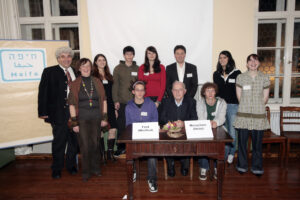
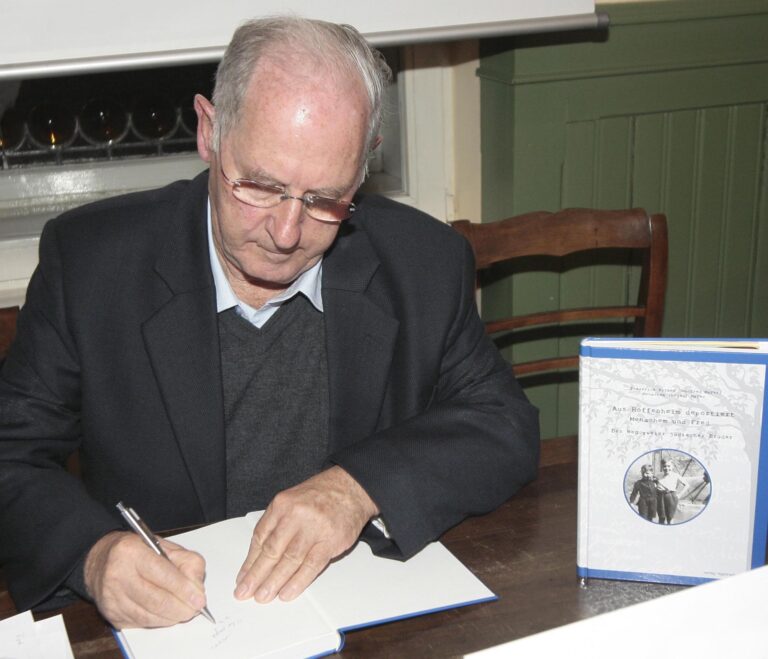
After I retired I decided to write down my history. By then I had a large collection of documents, and now I wanted to edit them. That was in the second half of the 1990s. I met my brother in Canada then, we took a stroll together and I told him about my plan, and he said that he also wanted to record his story. That was when I suggested to him that we would honor our parents greatly if we did collaborate. He agreed and so we decided to write a biography together. This was quite difficult because he neither spoke nor wrote a single word in Hebrew. Therefore I wrote my texts in Hebrew, he sent me his texts in English, and I translated them into Hebrew. There are chapters which we wrote together, and then there are the chapters which are his own and those who are mine. What I wrote I did send to him in English, and thus we have written everything together and did not think of a publication. It was conceived for our grandchildren, but when a friend read it he said it would also be very interesting for a wider public. So I turned to Yad Vashem and they accepted it immediately. The book was printed in Hebrew. That was the first edition in the year 2001. A year later it was translated and appeared in English, and Fred came here for the book launch.
At that time the protestant Pastor in Hoffenheim was Matthias Uhlig. I already knew and valued him for quite some years, and when the English edition appeared I sent him a copy. He read it immediately and said it would be important to publish it in German. A few months later he had found a translator and the family Hopp as sponsors. Fred and I knew the name Hopp. Emil Hopp, a leader of the SA and teacher in Hoffenheim who was present at the destruction of the Hoffenheim synagogue, had three children: Karola, Rüdiger and Dietmar. Then I received a mail from the Hopp siblings, in which they wrote: ‘We have read the book, we did not know that there still were survivors from Hoffenheim. What happened back then is terrible. Our father was a Nazi, and it is important to do everything possible to prevent anything like that ever happening again.’ They asked if we were willing to accept their financing of the book’s German translation. One thing they asked was if it were possible not to mention their father’s name in the German translation. We thought over that, and I responded: ‘No, we are not willing. We want the book to remain as it is, because just like the victims have names, so do the perpetrators.’ They answered: ‘We do understand this, and we are still interested in it.’ Thus the contact with the Hopp siblings came about. In 2005, twelve years ago, the German translation was printed, and they decided to organize a big ceremony and invited every one: us, our grandchildren and great-grandchildren, and also other survivors from Hoffenheim, not just our family. There were two children which are still alive. So there the friendship between the Hopp siblings and us developed slowly. Later they invited us again, and we invited them to come here. They came on two occasions. The first time it was Dr Rüdiger Hopp with his wife, and the next time they all came, the whole family. I have showed them the land, we are truly friends. Fred had also met with the Hopp brothers in Florida and had them invited to this place.
To keep the memory alive
Monuments, the success of the book and a screen adaption
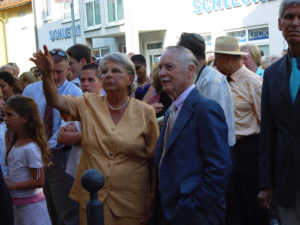
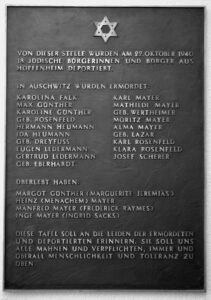
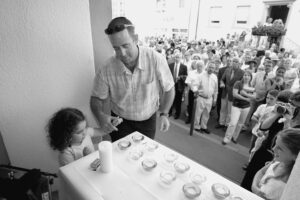
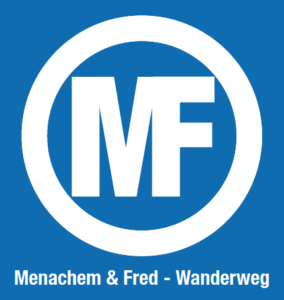
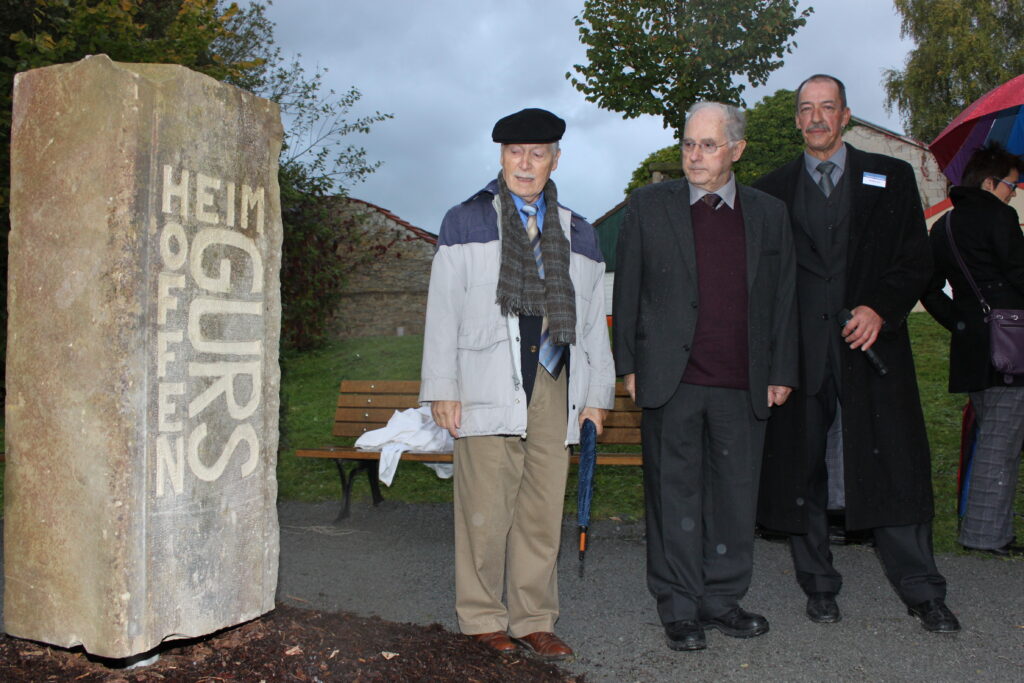
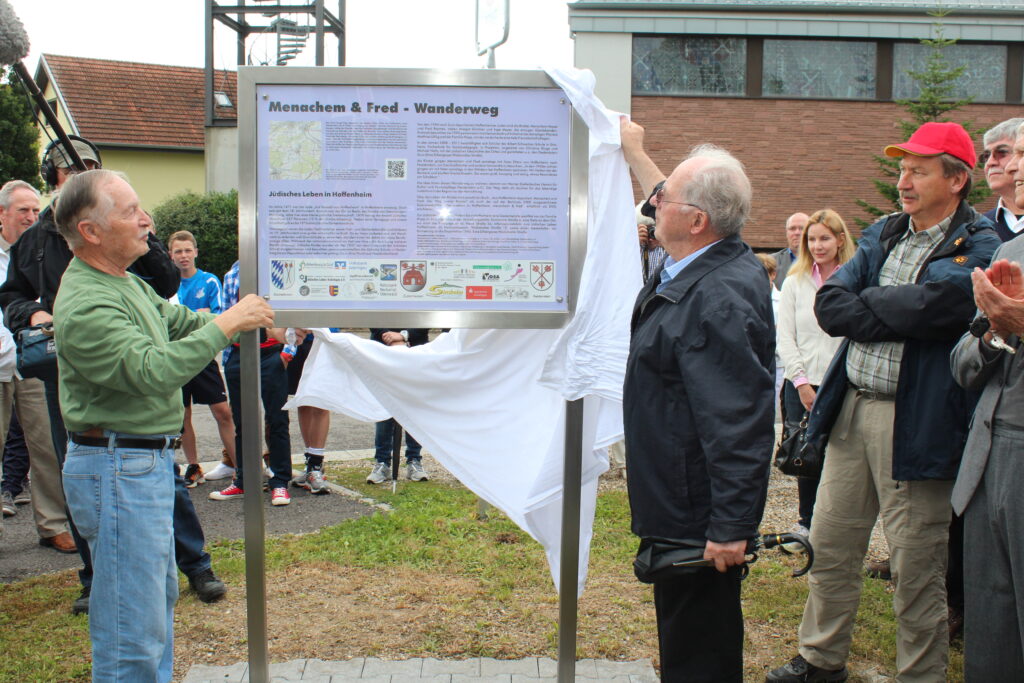
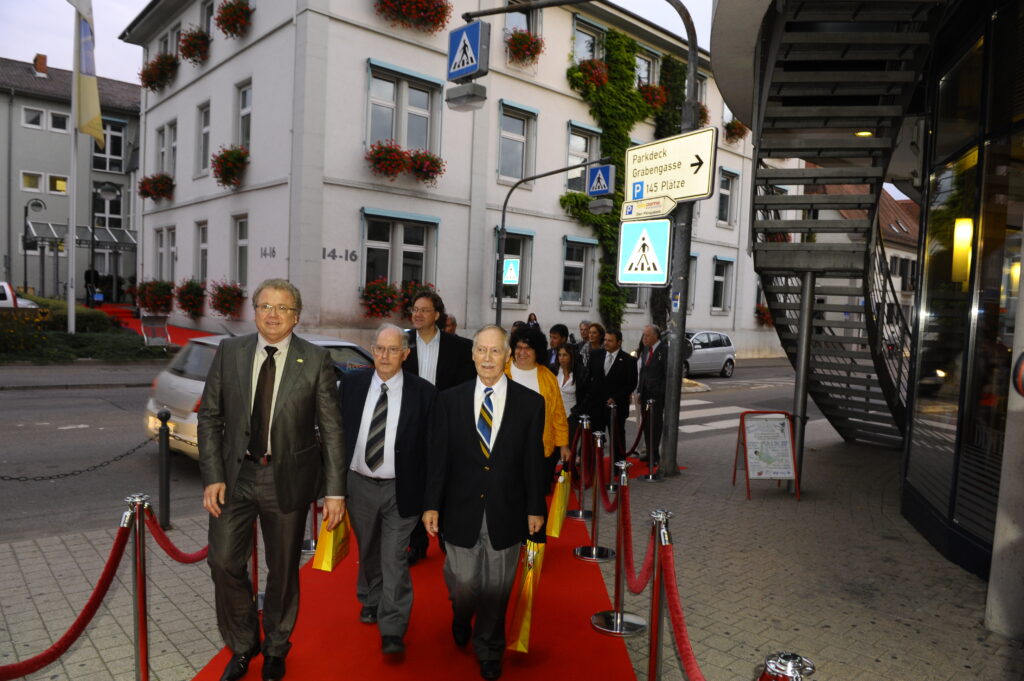
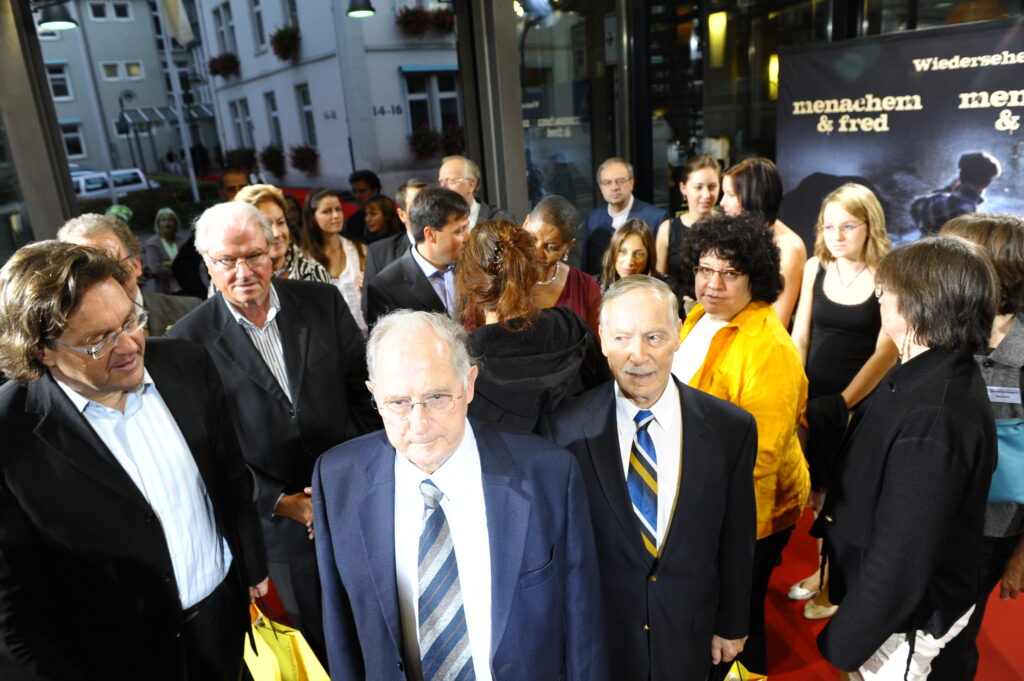
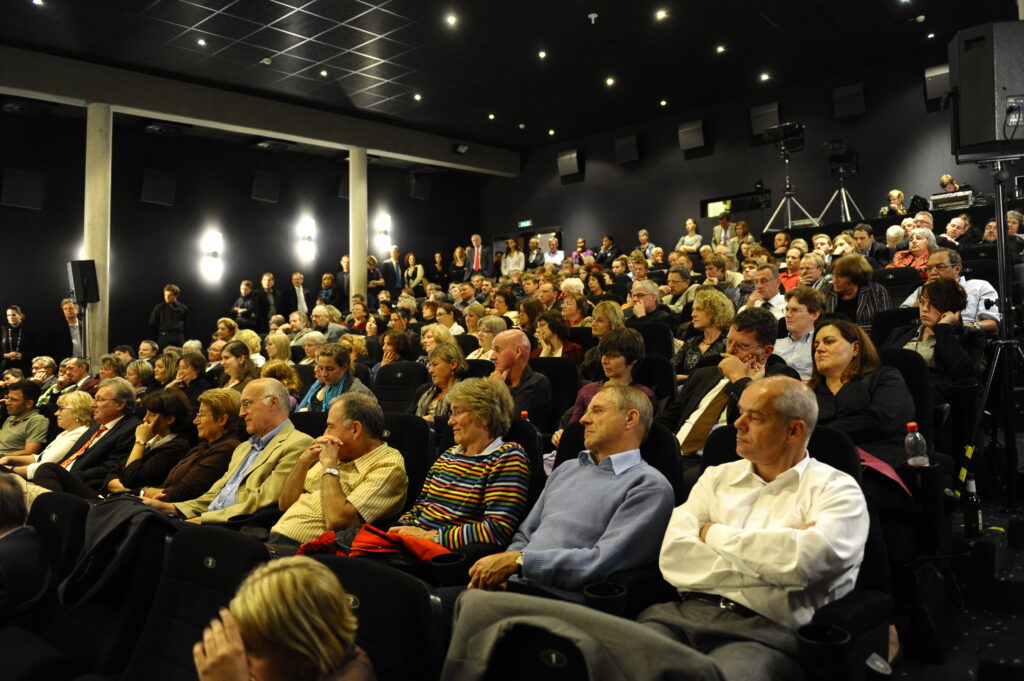
On the inner side of the cemetery wall in Hoffenheim, where no one ever goes, there is a memorial plaque. The plaque shows a number of crosses and a Menorah. ‘In memory of the victims of National Socialism’ is written on it. I asked Pastor Uhlig: ‘What is this, who comes here, who looks at it? And why this mingling of crosses and the Menorah? And why a Menorah and not a Star of David? Who would recognize a Menorah? Nobody! This is no way to educate people! It is not the truth, it is just a quarter of the truth!’ A cross for the gypsies, a cross for the homosexuals, one for the Catholics and so on – that was the explanation then. And I told him this was no way of educating children. He asked me if I were willing to visit the school in Hoffenheim. I answered that if this would not be changed I would not do so. That was in 1990. He related this to the brothers Hopp, and so they decided to see for a new plaque with the names on it of all those who were deported, mounted to the side of the entry into the town hall of Hoffenheim. That was their initiative too, and it is the second plaque.
During the dedication ceremony of the memorial plaque in Hoffenheim and the presentation of the German translation of our book ‘Menachem & Fred: thoughts and memories of two brothers’ [Note: it appeared in German under the title ‘Aus Hoffenheim deportiert: Menachem und Fred – Der Weg zweier jüdischer Brüder’] I was approached by a woman in her mid-fifties who had tears in her eyes and asked me if I would be willing to accept something from her. I did not understand what she meant. Then she said: ‘At home we have a chest of drawers, and there is one drawer which no one ever wanted to open, as if it were bewitched. There is a fork in it. When you had to leave from the synagogue, your mother pushed a wheelbarrow laden with clothes and different other things. Then this fork fell to the ground. And one of my siblings brought the fork into our home. Do you want to have it?’ And I said: ‘Yes, of course!’ I was very much surprised and excited. She later sent me some cutlery, saying that when she opened the drawer she had found not only one fork, but a set of cutlery. And she wrote: ‘Cutlery which unjustly came to us. A knife, a spoon, and a fork.’
Today there are five different memorials in Hoffenheim. There is also the Menachem and Fred hiking path connecting Hoffenheim and Neidenstein, which was dedicated in 2012 to the memory of our family.
I appreciate the good will of all these people, because these initiatives make it possible to learn something about the history of the Jewish community and about what happened, to learn that there even were Jews. But all the memorials have resulted from private initiative, not from that of the town or its administration. The first memorial in the cemetery is by Werner Zuber. He also wanted to meet me but we never came together. The memorial plaque at the town hall with the names of all those deported from Hoffenheim was made in 2005 and initiated by the Hopp siblings. The hiking path was an initiative by the teacher Michael Heitz from Sinsheim, youth players of the TSG Hoffenheim [Note: the local sports club], the Verein Jüdisches Leben Kraichgau e.V. [Note: an association dedicated to the history of the Jews in the region] and others. They all have studied the Jewish history intensively. There is a big stone since 2010 as a memorial to the deportation of Jews from Hoffenheim to Gurs, made and actually cut by pupils from the Albert Schweitzer school in Sinsheim. And since 2012 there is a memorial plaque on the spot where once the synagogue stood, an initiative by Werner Rudisile from Hoffenheim.
All this is no satisfaction to me, for you can not change the past. But there are people who care for that the past will not be forgotten.
Some years ago Rüdiger Hopp brought me in a car into the beautiful surroundings of Hoffenheim. The trees, the woods, everything is green, the flowers are most beautiful, really – it is wonderful. And he said to me: ‘Menachem,’ (sometimes he also calls me Heinz) ‘aren’t you delighted, is it not beautiful here?’ And I said: ‘Yes, I know that it is beautiful, but you talk rationally and objectively, while the language in which I answer is governed by emotions, and I am not able to feel well in all this beauty. I do not understand how humans could behave like wild animals among all such esthetic beauty. Even wild animals do not behave like these people did. That is why I do not fell especially well.’
During the book launch of the English edition [Note: the English edition of ‘Menachem and Fred’] we met a film director. She told us that she wanted to make a film about our history. We agreed. We did not hear for years from her, than she said that she had organized funding, and the film became an Israeli/German co-production. And three years later, that was in 2008, the film was completed. A year later ‘Menachem & Freda’ received the Cinema for Peace Award of the Berlinale as ‘the most inspirational movie of the year.’
After it had premiered in Germany [Note: on September 30, 2009 in the theatre Citydome in Sinsheim] it was shown another time in Heidelberg, when my brother and I also were present. During the discussion with the audience I was asked if I hated the Germans? My answer was that hatred were alien to me, but that I differentiate between the earlier generation, which has almost vanished now, and the younger generations which recognize the past and are willing to take responsibility for the future. A woman in the audience stood up with tears in her eyes and said to me: ‘Please forgive me!’
I answered her: ‘I do not know you and there is nothing I could forgive you.’ She repeated her plead several times.
After the third time I said to her: ‘When you ask me to forgive something done by your grandfather or by your parents, I can only say that my parents who have been murdered in Auschwitz have not commissioned me to forgive their murderers.’ Then it was totally silent in the theatre.
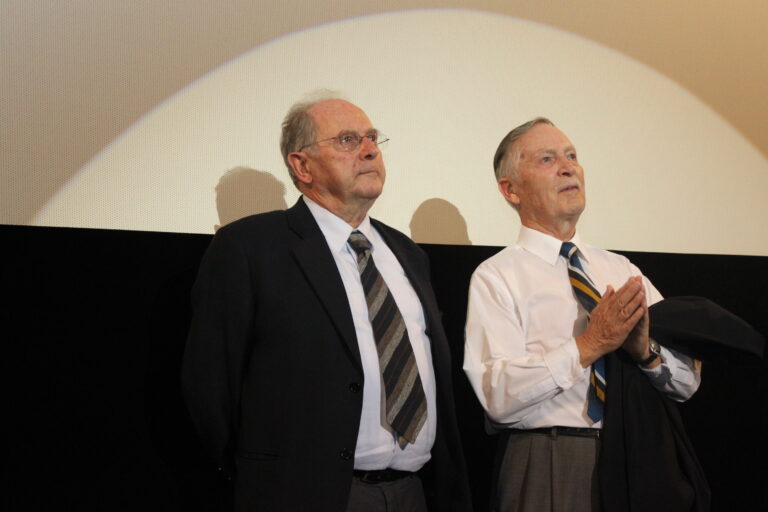
Generations meet: Menachem and Ilay
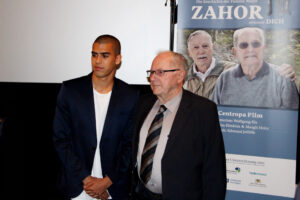
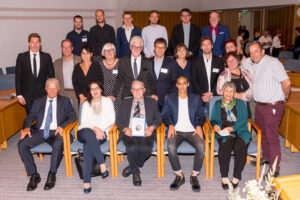

References
- Raymes, Fredrick; Mayer, Menachem: Aus Hoffenheim deportiert. Menachem und Fred. Der Weg zweier Brüder. Verlag Regionalkultur Ubstadt-Weiher–Heidelberg–Basel, Zweite überarbeitete Auflage 2008
- Heitz, Johanna: Fred Raymes und Dr. Menachem Mayer. In: Heitz, Michael; Röcker, Bernd (Hrsg.): Jüdische Persönlichkeiten im Kraichgau. Verlag Regionalkultur Heidelberg, 2013. S. 199ff.
